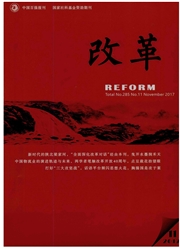

 中文摘要:
中文摘要:
针对我国资本市场存在的薪酬-业绩倒挂现象,将2003-2015年A股上市公司作为研究样本,分析公司盈亏状态对出现薪酬-业绩倒挂现象概率的影响。实证结果发现:与盈利上市公司相比,亏损上市公司出现薪酬-业绩倒挂现象的概率更大;考虑到产权性质差异,民营亏损公司出现薪酬-业绩倒挂现象的概率比国有亏损公司更大;管理者权力较大的亏损公司出现薪酬-业绩倒挂现象的概率更大。监管部门应该重点关注亏损公司的高管薪酬激励制度的合理性。
 英文摘要:
英文摘要:
Based on the phenomenon of pay-performance upside down in China's capital market, using the data of the A-share listed companies from 2003 to 2015, we investigate the impact of the company's profit and loss on the probability of pay-performance upside down. The empirical results show that: Compared "with the profit enterprises, the probability of the pay-performance upside down is higher in the loss-making enterprises. Considering the difference of the property right, the probability of the pay-performance upside down is higher in the loss-making enterprises with state-owned ownership. The probability of the pay-performance upside down is higher in the loss-making enterprises with greater power of executives. Thus, we argue that regulators should focus on the rationality of the executive compensation incentive system of loss-making enterprises.
 同期刊论文项目
同期刊论文项目
 同项目期刊论文
同项目期刊论文
 期刊信息
期刊信息
